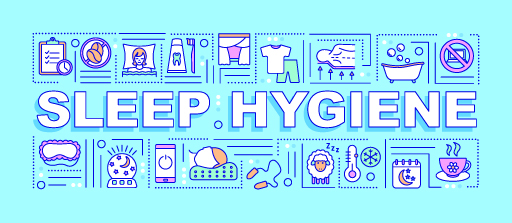3 Sleep hygiene
The good news is, there is plenty you can do to help ensure you get better sleep on a regular basis.
You may be familiar with the term ‘sleep hygiene’, which refers to the habits and behaviours that we engage in before we go to bed. Our bedtime habits can interfere with sleep or support it. Basically, there can be value in ‘cleaning up’ these habits, particularly if we have held them for many years. The idea of sleep hygiene as a way of improving sleep has limited support in science, but many in menopause have found it helpful to take deliberate and consistent actions to improve their sleep. With our modern lifestyles not everyone has a normal 9–5 day and irregular working hours, such as shift patterns, can add in an additional challenge for some people.
Here are some general pointers to improving sleep hygiene that might be helpful. During the waking period:
- Avoid caffeine and sugar (if you have to eat it at all) after the middle of the day.
- Make sure you finish drinking the greater part of your fluid intake, which should consist of around 2 litres of plain water, in addition to tea, coffee, juice, 4–5 hours before you go to bed.
- Make breakfast and/or lunch your main meal/s of the day, and avoid eating three hours before you go to bed.
- If you have a middle-of-the-day nap, make it no longer than 25 minutes.
- Introduce a ‘device moratorium’, for at least an hour, before you plan to go to bed. This means that you don’t look at any screens – not your phone, your tablet, your laptop or your TV. These devices emit blue light, with interferes with the brain’s production of the ‘sleep hormone’, melatonin. If you can bear to, don’t even have your phone in the bedroom.
Many people find things like drinking herbal tea or meditation can be useful techniques before bedtime.

